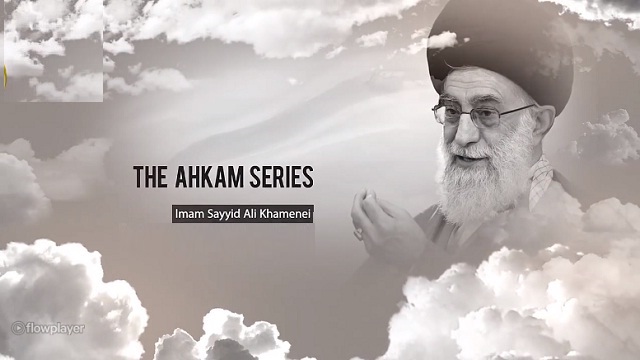Jurisprudence & Religious affairs from Imam Khamenei;
Khums on Inheritance
Question1: My father died and I don't know if he had Khums year or not. Is the inheritance from our late father subject to khums?
Answer: If you are not sure that he owes khums or his property is subject to khums, you do not have to pay khums. Otherwise, you must pay his debt to khums like his other debts at first and then distribute the rest among the heirs.
Change in Khums Year
Question2: If the first income of the new year occurs with a time interval after the end of the Khums year, can the beginning of the new Khums year be set as the date of the first income?
Answer: It is no problem.
Khums on Capital
Question3: What is the duty if one doubts whether Khums is due on the capital with which he earns his living or not?
Answer: If the original capital is from his income and no khums has been paid on it, it is subject to khums at the end of the khums year. Yet, it is not obligatory to pay its Khums in the following cases:
a) if after paying its khums, the income earned by using the rest of the capital is not enough for living expenses;
b) if after paying its khums, the business to be managed with the rest of capital is not compatible with his station as per common people; or he doubts whether this is the case or not.
A Long-term Temporary Marriage
Question4: If a temporary marriage contract is concluded for a long time (for example, 99 years), is it valid or ruled as a permanent contract?
Answer: In general, the validity of a long-term temporary marriage — while there is usually no possibility that the couple survive until that time — is problematic.
Ghusl of Touching the Dead Fetus and Paying Blood Money for Abortion
Question5: Due to a genetic problem, the fetus has become dehydrated and immobile, and the mother, despite the effort and spending money to preserve the fetus, was forced to abort it by a specialist doctor. In this case:
1- Is it the mother's responsibility to make ghusl of the dead body?
2- Are parents to pay blood money or to do any act?
Answer:
1) If the fetus is at least four months old and is aborted dead, it is necessary for mother to make ghusl for touching the dead body of fetus, but if it died after abortion, it is not necessary for her to make ghusl for touching it.
2) If the fetus has a soul, then due to obligatory caution, the person who causes the abortion must pay the blood money. However, if the fetus is aborted after it died by itself, no blood money is required.
To Be Calm and not to Move during Prayer
Question6: To what extent is it obligatory to keep the body calm and motionless while reciting chapters and dhikr during prayer?
Answer: During prayer, the body of the worshiper should not move to the extent that the praying posture is disturbed. Also while reciting the two chapters and the obligatory dhikr of tashahhud, rukū‘, sajdah, etc., the body should not move. It is invalidated if intentionally one moves. If it happens unintentionally, one must say the dhikr and the like again after the body gets calm. However, it is no problem if one moves their hands or fingers a little although it is mustaḥabb caution not to move them during prayer.
In addition, when saying a mustaḥabb dhikr of prayer (except for bihawlilāhi wa quwatihī aqūmu wa aq‘ud which is said while standing up), the body must be calm by obligatory caution. Of course, there is no problem in saying dhikr while moving with the intention of dhikr in general (i.e. not with the intention of dhikr of prayer).
Women as the Main Members in a Family
The Supreme Leader:
Consider women as the main members which constitute a family. The comfort in the family atmosphere, and peace and tranquility in the home environment originate from the blessing of women and the feminine nature. Look at a woman as a creature that can become a source for the good in society by raising noble people. Having children is a great task. Rather, it is one of the most important efforts that women make and among the women's duties. Because having children is actually a woman's masterstroke. It is she who endures its difficulties, the one who bears its sufferings. She is the one whom the Almighty God has given the means to raise a child. Trying to increase the population, to rejuvenate the country's human resources and to support family are among the most essential duties of both officials and ordinary people.

